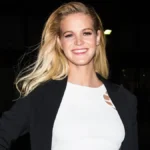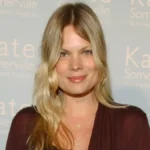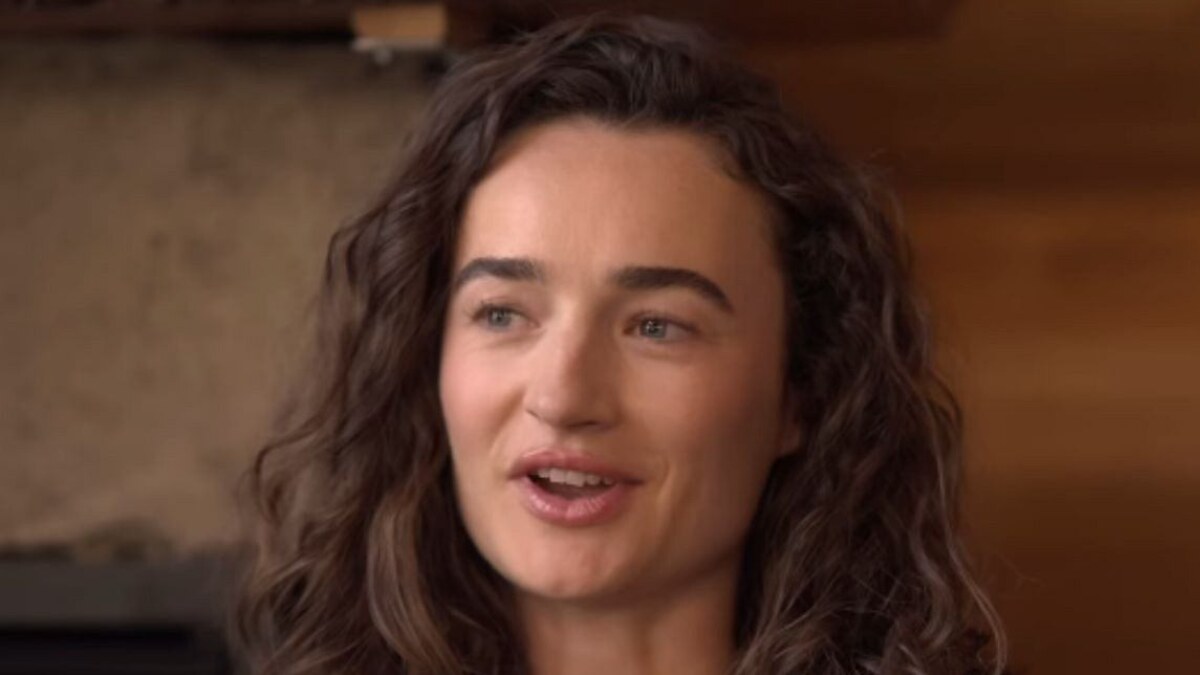From the outside, she looked like another fresh face in a long line of guest stars — a brief appearance here, a one-liner there. But behind the scenes, Kelley Mack was quietly laying the foundation for something far more ambitious than just screen time. In an industry that often rewards visibility over depth, she chose the harder path: to master not just the performance, but the story itself.
Today, Kelley Mack’s career trajectory stands as a case study in creative reinvention. Known initially for her role as Addy on The Walking Dead and a series of nuanced guest appearances, Mack has evolved into a rising actress and emerging producer with a distinct voice. She hasn’t just played roles — she’s reshaped the rules.
This is the story of how Kelley Mack turned limited opportunities into launching pads, how she moved from the periphery to the producer’s chair, and why her path matters in an era where artists are reclaiming authorship. Her journey isn’t just inspiring — it’s instructive.
How Kelley Mack Redefined Guest Roles as Career Stepping Stones
The Early Days: Navigating the One-Off Appearance Circuit
In the early years of Kelley Mack’s career, her name rarely appeared above the fold. Instead, it flashed briefly in episode credits of genre staples — The Walking Dead, You’re the Worst, and Two Sentence Horror Stories. For many actors, these one-off roles can feel like artistic purgatory: fleeting exposure with little creative payoff. But Mack treated each one like a masterclass.
Landing these guest spots meant stepping into fully formed worlds with little time to adjust. There’s no character arc, no build-up — just an entrance, impact, and exit. “You have to bring the entire emotional palette in minutes,” Mack once shared in an interview. “It forces you to trust your instincts.”
Behind the scenes, it meant adapting to different sets, directors, and expectations week after week — a grind that tested her emotional stamina and professional agility. But each role helped her refine her range, sharpen her instincts, and build relationships that would prove pivotal later. These early appearances weren’t detours — they were the foundation.
Character Depth in Short Form
Kelley Mack’s portrayal of Addy in The Walking Dead wasn’t just a supporting role — it was a study in restraint, subtlety, and emotional layering. With limited screen time and a storyline that could have easily veered into the forgettable, Mack carved out a presence that lingered far beyond her scenes. Her performance was built not on dramatic monologues, but on quiet pivots — a guarded glance, the clench of a jaw, the way her voice would catch mid-sentence when fear or hope cut through.
In short-format roles, there’s rarely room for a traditional character arc — which makes the nuance Mack brought all the more striking. She built internal backstories and made quick emotional decisions that felt lived-in. Viewers connected with Addy not because they knew everything about her, but because they sensed there was more to know.
This kind of acting demands deep preparation and sharp instincts — tools Mack honed early. It wasn’t just presence — it was precision. And it’s part of what began to set her apart.
The Pivot That Changed Everything — Moving From Actor to Storyteller
First Glimpses of Creative Control
For Kelley Mack, the turning point didn’t arrive with fanfare. It came quietly — somewhere between auditions, retakes, and the realization that she was always speaking someone else’s words. “I started to feel the edges of the box I was in,” she said, reflecting on her early acting experiences. “And I wanted to build something outside of it.”
It wasn’t about rejecting acting; it was about expanding her role in the storytelling process. On certain sets, she’d notice where scenes could be sharper, where dialogue missed emotional beats. That instinct — to fix, to refine, to own — became impossible to ignore. The more she observed the machinery behind a production, the more she wanted her hands on the gears.
Maybe it was a creative frustration that sparked it. Maybe it was watching peers helm their projects. But once Mack glimpsed the possibility of authorship — of writing and producing her narratives — she didn’t look back. The need to express a story fully, not partially, became her new calling.
Learning the Language of Production
Kelley Mack didn’t stumble into producing — she studied it like a second language. After years on set as an actor, she began observing what happened between takes: the quiet choreography of the crew, the decision-making conversations behind the monitor, the script adjustments that shaped tone and pacing. But curiosity wasn’t enough — she wanted fluency.
She started small. Mack co-wrote and co-produced indie shorts, using modest budgets and self-financed shoots to learn every phase of production hands-on — from script breakdowns to SAG paperwork. She leaned into trial-by-fire filmmaking, where creativity had to stretch further than the funds. These weren’t side projects; they were her education.
To sharpen her skills, she participated in workshops focused on women in film and indie producing. She joined networks of emerging female creatives who shared resources and lifted each other through crowdfunding campaigns and film festival circuits. Producing wasn’t just a new credit — it became a new kind of authorship. She wasn’t just showing up to tell the story anymore — she was building it from the ground up.
Elevating Independent Cinema — Mack’s Producer Portfolio and Creative Philosophy
Signature Themes & Aesthetic Choices
Kelley Mack isn’t just producing stories — she’s curating emotional terrain. Her work behind the camera reflects a fascination with what simmers beneath the surface: women on the brink of revelation, relationships laced with unspoken tension, characters whose morality is in constant negotiation. These aren’t just plotlines — they’re emotional pressure cookers.
In her short film The Other Side, which she co-wrote and produced, Mack explored the grief-soaked aftermath of loss through the lens of fractured reality. The aesthetic was stark but intimate — the kind of visual storytelling that lingers, not with spectacle, but with atmosphere. The pacing was deliberate, the dialogue spare, inviting the viewer to fill in the emotional blanks.
Across her projects, there’s a clear throughline: psychological complexity over easy resolution, female agency over formula. Mack doesn’t just want to entertain — she wants to disturb comfort zones, to create the kind of films that stay with you long after the credits roll. Her voice as a producer isn’t loud, but it’s unmistakably calibrated — and it’s shaped by a deep understanding of what it means to feel unseen, and what it takes to be heard.
Independent, Not Invisible
Kelley Mack’s work in independent film isn’t the glossy kind — it’s the kind made with late nights, loaned equipment, and the unshakable belief that the story matters more than the scale. As a producer, she’s been knee-deep in everything from location scouting to negotiating festival deadlines — often juggling multiple roles to bring a vision to life.
One of her short films, The Other Side, premiered at several regional festivals and quickly earned attention for its haunting atmosphere and emotionally charged narrative. But getting it there wasn’t easy. “We didn’t have a marketing budget,” Mack said. “So we became our publicists, editors, and social media managers. You learn fast in indie — or you don’t last.”
That DIY ethic is a hallmark of her producing style. Mack isn’t a figurehead; she’s on set holding a clipboard one moment and rewriting dialogue the next. She understands that in the indie space, trust is built not through title cards, but through sweat equity.
By the time her films reach audiences, they carry more than her name — they carry her fingerprints. That kind of authorship can’t be bought. It has to be earned, frame by frame.
How Kelley Mack Stacks Up Against Industry Contemporaries
Kelley Mack’s evolution from actor to producer places her within a growing lineage of women in Hollywood reclaiming authorship over the stories they tell. It’s a creative trajectory shared by notable contemporaries like Brie Larson and Riley Keough — both of whom have parlayed acting success into meaningful production ventures rooted in personal vision.
Like Larson, who co-founded the platform The Unicorn to support emerging voices in storytelling, Mack’s shift to producing feels deeply intentional. Her projects prioritize emotional complexity, often exploring trauma, identity, or moral ambiguity — themes Larson has also gravitated toward in her directorial debut, Unicorn Store. There’s a shared desire to inject vulnerability into narrative structures often built around control.
Riley Keough’s path offers another point of comparison — particularly in her co-founding of Felix Culpa, a production company devoted to “elevated and boundary-pushing” content. Keough’s War Pony, which won the Caméra d’Or at Cannes, is a testament to her ability to shepherd underrepresented stories. While Mack’s work has yet to break into global festival circuits at that scale, the thematic parallels — particularly the interest in human nuance over high-concept spectacle — suggest a similar instinct for substance over noise.
Mack may not yet have the name recognition of her peers, but the foundation she’s building — marked by creative control, indie credibility, and a clear storytelling ethos — places her in strong company. What connects all three women is not just their careers, but their commitment to crafting the kind of stories they once waited to be cast in.
Not Just On-Screen — Building Authenticity and Trust Through Community & Voice
A Voice for Emerging Artists
Kelley Mack’s creative evolution isn’t just about making space for herself — it’s about opening the door for others. In interviews and on social platforms, she’s consistently used her voice to uplift emerging talent, particularly women and underrepresented creatives in the indie film space. Whether she’s highlighting collaborators, sharing casting calls, or offering behind-the-scenes transparency, her message is consistent: the industry needs more inclusion, and it starts with creators who actively make space.
On panels and podcasts, Mack has spoken about the importance of collaboration over competition, advocating for film sets that prioritize emotional safety and creative input. She’s part of a growing wave of actress-producers who believe authorship should be shared — not siloed.
By investing in community, not just content, Kelley Mack positions herself as more than a rising voice — she becomes a resonant one. Her career may be self-made, but it’s not self-serving. And that’s exactly what makes it matter.
Social Media as a Platform for Transparency
In an industry built on polish, Kelley Mack’s social media presence feels refreshingly unfiltered. Across platforms like Instagram and X, she shares not just the final product, but the creative process — script notes scattered across her desk, post-shoot reflections, moments of doubt turned into learning curves. These glimpses behind the curtain offer more than content; they offer connection.
She often uses her platforms to uplift collaborators and highlight fellow indie creatives, giving visibility to others while also modeling what true community looks like. Her posts are thoughtful, not performative — a rare tone in a space saturated with highlight reels.
Followers engage not just with her updates, but with her, responding to stories about producing mishaps or captioned outtakes with encouragement and insight of their own. In sharing the imperfect parts of the journey, Kelley Mack builds something many actors only gesture toward: trust. And in today’s entertainment landscape, that’s its kind of currency.
Why Kelley Mack’s Career Resonates Beyond the Screen
As someone who’s spent years writing about film and culture, I’ve seen plenty of careers rise through the usual channels — agents, auditions, algorithms. But what strikes me about Kelley Mack isn’t just where she’s headed — it’s how she’s getting there.
Her trajectory is a quiet rebellion against the notion that actors should wait to be chosen. Instead, she’s choosing herself — stepping behind the camera, shaping narratives, and treating each production as an act of self-definition. In doing so, she reflects a larger cultural shift: one where creative ownership is no longer reserved for the elite few with studio deals, but increasingly claimed by those who build from the ground up.
Mack’s story resonates particularly with early-career creatives — especially women — who are done playing by invisible rules. She reminds us that success doesn’t always come loudly, but it can come deliberately. And when you watch her work, you get the sense she’s not chasing a spotlight — she’s carving out space for her kind of light.
It’s that blend of artistry, authorship, and quiet tenacity that makes Kelley Mack someone worth watching — not just for what she makes, but for what she models.
What’s Next for Kelley Mack? — Tracking a Trailblazer in Real Time
Upcoming Projects & Aspirations
Kelley Mack has made it clear: producing wasn’t a detour — it’s a direction. In recent interviews and social posts, she’s hinted at several projects in development, including a new psychological drama she’s co-writing, centered on themes of identity and emotional isolation. She’s also expressed a desire to step into directing, aiming to helm a short film by year’s end.

While details remain under wraps, Mack has confirmed that her upcoming work will continue to spotlight layered female leads and morally complex narratives — a signature she’s been refining across her indie portfolio. With her steady momentum, growing network, and creative autonomy, Mack isn’t just booking roles — she’s building a slate. And from all appearances, she’s just getting started.
The Bigger Picture
Kelley Mack’s path may still be unfolding, but its shape already offers a blueprint for what sustainable, self-driven creative careers can look like. Her shift from actor to producer — marked by artistic clarity and collaborative ethos — reflects a larger movement toward decentralizing power in storytelling.
She’s not just making films; she’s modeling a process: start small, stay honest, and build something meaningful from the inside out. For the next generation of filmmakers — especially women navigating an industry still slow to change — her career signals that authorship isn’t something you wait to be handed. You claim it.
If Mack continues on this trajectory, her legacy won’t just be what she makes. It’ll be what she makes possible for others.
The Role She Wrote for Herself
Kelley Mack began in the margins — stepping into other people’s stories for a scene or two, making the most of what little space was offered. But somewhere between the casting calls and curtain calls, she stopped waiting to be chosen. She chose herself.
What began as a string of guest roles has evolved into something much more intentional: a creative life authored from within. As a producer, writer, and soon-to-be director, Mack is no longer interpreting someone else’s vision — she’s building her own from the ground up. And she’s doing it with a clarity that’s as quiet as it is powerful.
Her story reminds us that legacy isn’t always defined by the biggest stage or the loudest voice. Sometimes, it’s written in the steady reclaiming of narrative, one frame at a time. For Kelley Mack, the real breakthrough wasn’t a single role. It was realizing she could write the part she was meant to play — and then doing just that.
Mohit Wagh is the co-founder of The Graval with over 10 years of experience in SEO and content strategy. He specializes in crafting data-driven, authoritative content that blends cultural insight with digital growth.















4 thoughts on “How Kelley Mack Forged a Powerful Trajectory from Guest Roles to Producer Status”